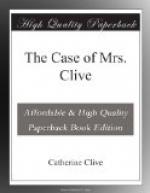[4] James Boswell, Boswell’s Life of Johnson, ed. George Birkbeck Hill, rev. L.F. Powell (Oxford: Clarendon Press, 1934-1950), IV, 243.
[5] Dramatic Miscellanies (London, 1785), III, 131, 376.
[6] Quoted by [John Genest], Some Account of the English Stage (Bath: H.E. Carrington, 1832), V, 230.
[7] Memoirs of His Own Life (York, 1790), II, 257. See Theatrical Correspondence in Death. An Epistle from Mrs. Oldfield (London, 1743), p. 7.
[8] The Complete Works of Henry Fielding, Esq., ed. William Ernest Henley (New York: Croscup & Sterling Co., [1902]; reprinted Barnes & Noble, 1967), X, 277-278.
[9] For a useful exposition of the 1733 and 1743 disputes in terms of the licensing act see Watson Nicholson, The Struggle for a Free Stage in London (Cambridge, Mass.: Archibald Constable & Co., 1906.).
[10] Percy Fitzgerald, The Life of Mrs. Catherine Clive (London: A. Reader, 1888), p. 24. P.J. Crean, “The Life and Times of Kitty Clive,” Diss. Univ. of London, 1933, is, however, the authority on Clive’s life. I am indebted to Professor Crean.
[11] Quoted in Mary E. Knapp, Prologues and Epilogues of the Eighteenth Century (New Haven: Yale University Press, 1961), p. 69.
[12] Yet, with Fitzgerald (Life, p. 34), I believe that Fielding could have helped Mrs. Clive ready her Case for the press. Certainly the “correctness” of that printed text could not have been achieved by her alone. Cf. Clive’s MS letters, Appendix, “An Edition of the Afterpieces.”
[13] See Crean, “Life and Times,” p. 215. A pertinent example of actors’ seeking redress is, of course, the revolt of 1694-1695, described by John Downes, Roscius Anglicanus (London. 1708), pp. 43-44; Augustan Reprint Society publication number 134 (Los Angeles, 1969), with an Introduction by John Loftis, is a facsimile of the first edition.
[14] See Arthur H. Scouten, “Introduction,” The London Stage (Carbondale, III.: Southern Illinois University Press, 1961), Pt. 3, xcv, cxlvii, and Dramatic Congress, p. 20.
[15] Cf. James Ralph, The Case of our Present Theatrical Disputes (London, 1743), pp. 3, 48.
[16] The Case Between the Managers of the Two Theatres, and their Principal Actors (London, 1743, misdated 1713), p. 20. Cf. An Impartial Examen (London, 1744), pp. 10-11, 21-22. See also the three Queries pamphlets: Queries to be Answered by the Manager of Drury-Lane (London, 1743); Queries upon Queries (London, 1743); A Full Answer to Queries upon Queries (London, 1743).
[17] (London, 1744), pp. 15-16.
[18] Dramatic Congress, p. 22. Thomas Davies, Memoirs of the Life of David Garrick, 3rd Ed. (London, 1781), I, 90, says of Rich: he “seems to have imbibed, from his very early years, a dislike of the people with whom he was obliged to live and converse.”




